This is a repost of a essay first posted to Twitter on May 16, 2024. It has been lightly edited for long-essay format. Although it is long, it is perhaps my favorite story I’ve had the privilege to write about and share so far, and I hope you’ll agree!
"It's unfair. Children in the city always have an advantage, while our children have to work harder for the same chance".
In a Chinese mountain village, Boss Mao shares with me the amazing local history, his thoughts on the hukou system, and his dreams for his kids.
We're at Nanjianyan Scenic Area in Suichang County, the westernmost county of Lishui City, in Zhejiang Province. We're staying at Boss Mao's guesthouse in Shisuntou Village, population 300. This place wasn't easy to reach - last night we drove an hour up a twisty, foggy mountain road in the dark to reach it. It was very sketchy.
But it was all worth it in the morning!
We awoke in our guesthouse to discover what we had missed in the total whiteout mist conditions from last night: Shisuntou Village is perched on the rim of a steep canyon with awesome views.
The cost per night at this place was just 300 CNY. This was the view from our room:
After breakfast, I mentioned to Boss Mao that the rolling mists make for great photography and he invited us up to his rooftop balcony on the 5th floor for a better look over the village and canyon. Jean-Yves got busy with the camera while I chatted with Boss Mao.
Boss Mao told me we were fortunate to get a room last minute.
"The Labour Day holiday is typically busy, but this year I still have some empty rooms, because some guests from Shanghai couldn't make it...they were stuck in traffic on the highway and called me to say they couldn't come. So I opened up the rooms up again."
"Ah, their bad luck is my good luck. So do you make most of your revenue from the big holidays like Labour Day, National Holiday, and Spring Festival?"
"No, not at all. These are just supplementary income for us. Our main income comes from the two months in the middle of the summer..."
"Really? A lot of people come here for the summer?"
"Yes, it's typical for people to come here to escape the summer heat. It's a stable 25 degrees here all summer, so guests will come from Shanghai or Hangzhou and stay for a month. This is the main customer group. During those days, between the rooms and the restaurant, my gross revenue can be 8000 CNY per day."
"Wow! When did tourism start around here?"
"It started in the early 2000s, a few years after we got electricity. A private developer came in and began developing the canyon as an attraction. Later the local government came in and bought them out, and brought it up to 4A status."
"Whoa, hang on, you didn't get electricity up here until the 90s?"
"Yes that's right...the village was connected to electricity for the first time when I was in primary school. For a while, it only operated during the day, and the substation would be shut off at 10pm."
"Okay I'm 34...you must be a few years older than I am. So you can clearly remember life before the village had power?"
"Yes, I'm 39. I remember we used to use candle lamps for light. The older houses in the village all have black soot marks on the inside ceilings from this..."
"So did things here change a lot when the government developed it into a tourist attraction?"
"Yes, at the time it was Secretary Ge. He pushed for the development of Nanjianyan as a place for tourism."
"I guess this Secretary Ge is seen as a hero here?"
"Yes Secretary Ge helped us a lot."
"Do people in the village usually consider officials to be helpful?"
"No, not really. Our officials usually don't care about making efforts to do anything good...they are conservative, focus on preventing anything bad from happening on their watch. Unless they have some performance goals and they want to get promoted."
"Did the government encourage you to build guesthouses too?"
"No, at first it was just some villagers, with the houses closest to the attraction entrance. You can still see them there..." he points. "They were the first to try guesthouses. At first we didn't think it would work, but then we saw they really had guests, so more villagers decided to try."
"Are they your relatives?"
"Yes, haha. It's my uncle and his family. Almost everyone in the village is named Mao, like me. Some families of the Mao clan came to this mountain in the 1940s, to escape the fighting between the Nationalists and Communists. There were originally some other families here from the Zhou clan, but they left."
"The Maos chased away the Zhous?" Or maybe they got sick of you?"
"I guess so...hahaha"
"So after the first few guesthouses opened, more and more villagers decided they would try to open their guesthouses too? When did you open yours?"
"Well, this part of the village didn't have a paved road until 2018. Before that, it was just a dirt path. But the government decided to build a road from here to Shenlong Canyon."
"Oh wow, really. So this part of the road is actually pretty new?"
"Yes. To make the road, they had to take some pieces of our land...our fields. It was just a small portion, so we agreed, but with one condition - as compensation, they must automatically grant approval for us to open hotels here!"
I notice across the nearby fields there’s a glass bridge walkway across a canyon appears to lead to nowhere, just a grassy field. "So why does this glass bridge lead to some fields? Was that always the plan?"
"No...when the road was expanded through here, these fields were also supposed to be developed. There was supposed to be a parking garage right here, across from my guesthouse, and a path leading to the glass bridge. The tourism company planned to build some high-altitude attractions here, like bungee jumping in the canyon."
"What happened?"
"My neighbor didn't want to sell his land. They offered him 500k CNY, and he said no. Then they offered him 1M CNY and he said no. His counter-offer was 10M CNY, but that was too much for them, so they gave up on the plan. So they built the bridge, but didn't open the pathway on this side."
(I thought the outcome of this story from 2018 where the farmer won his case against the local officials made a particularly strong contrast to the story in my last essay from Lishui, which described a villager getting bullied by local officials for standing in the way of tourism development in 2005).
"This should be around the time you built your guesthouse, right?"
"Yes...I built this in 2019. Before it was just fields"
"Was it expensive?"
"In total, I spent 2 million CNY to build this guesthouse..."
"Really? That's a lot! How did you save up that much money?"
"I didn't save it up. I built in sections. You go to one bank, and you get a small loan to build one section of the guesthouse. Or you go to several banks and get several small loans. Once you build a part of the guesthouse, you start receiving guests...then you go back to the banks and show them that your business is already receiving customers with stable revenue, then they approve you for more loans."
"Okay, so you built the business in stages?"
"Yes...the first step was three loans of 300k CNY from three different banks. After I had some guests, the banks designated me as a "high quality" customer and allowed me to borrow more so I could build the second phase of the guesthouse. Actually they know about our village, so they have no problem to give us larger loans now. Everyone here built their guesthouse like this."
"Did you have any experience running a guesthouse before? Did you go to school for this?"
"No, I went to vocational school for mechanics. After I graduated, I worked in a ball bearings plant in Ningbo, but then I wanted to chase my dream of becoming a chef. So I quit my job and became an apprentice at a restaurant."
"How did you learn to cook?"
"I learned on the job. I started cutting vegetables, then I slowly moved up to steamed dishes, fried dishes, assistant to the head chef, etc. After a few years, I managed the whole kitchen at a tourism hotel."
"When you came back to the village to open a guesthouse, did your wife come with you? She's not from here, right?"
"No, she's not from here. She did accounting at the hotel where I was the head chef. We were dating, and I told her I had an opportunity to come back to my village and open a business, and I hoped she could come with me..."
"You were still dating at the time? You hadn't married yet?"
"I guess that was my proposal…I told her we could go get the marriage certificate, then come here to start a business."
"So...no bent knee...no proposal...no ring?"
"No...haha. No money for ring. Gotta be practical."
"And she accepted?"
"At first...no. She didn't like it. I told her this was my plan, and if she didn't want to do it, then maybe we should break up, and I would find someone else, because I'm ready to get married. She cried about it, but in the end she decided to come with me."
"Wow...how did you convince her?"
"I came home and took some pictures of this land to send to her on WeChat. I said this is where we would build the business together. I think that's why she agreed. If I was the son of a rich guy, and my business was just for fun, she would not have accepted. But for us to build something together…she agreed to that."
"Do you think she regrets?"
"No I don't think so. She manages the guesthouse accounts, the front desk...also helps me prep vegetables in the kitchen. She's a good partner."
"So you're a husband and wife team, owning a business together. Is that common in the village?"
"No. There's only one other couple that has a guesthouse together. Most men in our village had to leave the village to get married."
"You're a lucky man! You found a good one!"
"Yes, I'm very lucky."
"So I guess you're still paying off the guesthouse?"
"Yes, but done soon."
"It's a lot of debt"
"Yes, but I also know I have the income. When I was young, my heart would hurt after spending 1-2k CNY on something. Now I can spend 30-40k CNY with no problem, because I know where the money comes from. Especially if I am investing into the business, to improve the experience for my guests."
"Do you plan to buy a house in the city?"
"Yes, in the Town...or in Suichang County if I can. It's a requirement to get a Suichang urban hukou...you have to own a house...pay social insurance for three years. But that's the only way if you want your kids to go to school in the city, or use the hospitals."
"Do you think this restriction is fair?"
"No…it's unfair. Children in the city always have an advantage, while our children have to work much harder for the same chance. They get better jobs, so they stay wealthy, so rural kids can only use the rural schools and stay poor."
"How do you buy a house in Suichang? It costs a lot more than a house in the village, I'm sure."
"You can use your guesthouse as collateral for another loan. The benefit of the succcesful business is that you can use it as collateral if you want."
"Do a lot of people do this?"
"Yes, everyone uses their guesthouse business as collateral to get a loan to buy in the town, or the county center. Suichang has a lot of empty real estate."
"I guess the guesthouse buiness is the foundation of your whole life"
"Yes"
"So if the government wants you to buy a house in Suichang, they should support the tourism business here, so you'll have collateral to buy a house?"
"Yes. Or sometimes they will tear down the village because it's too remote, too poor, and give you compensation money so you can buy a house in the Suichang instead".
"So you definitely will send your kids to school in the Suichang county seat? Won't you miss them?"
"Yes. I'm conflicted. If you go with them to accompany them while they study, then you can't be with the business here to make the money, and if you're busy making money here, you can't be with your children. But also it's unreasonable to hope for a school in this village. There are only three children in the village the same age as my son. Of course I want them to get the best education I can, so..."
He smiles helplessly and spreads his hands. I know the classic phase coming next:
"There's nothing that can be done" (“没办法”)
"I also have to consider the environment my children have at school. Kids talk to each other, and compare. They start to understand things even when they're young. What does your dad do? What kind of food do you eat at home? What kind of car does he drive? What kind of snacks do your parents send to the school for the children to share? So I need to work harder. Our rural children have a disadvantage..."
"Do you hope your children will come back to the village after school? Will the next generation live here?"
"I'm also very conflicted about this. Of course I want my children close to me...but I don't want them to have to work in a guesthouse. It's really hard work. They should go to the city and get an education."
"I trust that you will figure it out. I think you're a good dad"
He smiles so widely that his eyes disappear and he nods his head in thanks, while looking down and away in embarrassment.
"I'm...I'm...working hard..."
At this point we've been chatting for a hour, and Jean-Yves has already filled up nearly 2 SD cards of panoramas and time-lapse footage, so I figure it's time to let Boss Mao go on with his day. "Okay Boss, thanks for chatting with me. I'll let you get back to work now."
"Okay, thank you. You can come up here later to take pictures again if you want."
We head downstairs and he disappears into the kitchen to start preparing for lunch, while we go to pack. We spend the rest of the day hiking in the scenic area and grab an excellent lunch in the village. I bought a jar of wild honey from a vendor in the town who filled it by scooping out of a bowl into which a mound of honeycomb was straining through a cheesecloth.
Nanjianyan Scenic Area was our last destination of the holiday and a highlight of our trip, not the least owing to our kind, welcoming and interesting host (and the food! and the views!)
We almost didn't come to Nanjianyan, due to the distance from Lishui and the general inconvenience, but in the end it was absolutely a winner! 10/10, would go again, and you should too. Boss Mao really is a superstar - an incredibly hard worker (that should go without saying) but also a super dedicated family man. His WeChat moments is a constant proud stream of pictures and videos of his two kids, a 9-year girl and a 7 year old boy. You can clearly see they're his whole life, and he’ll do anything for them.
-End
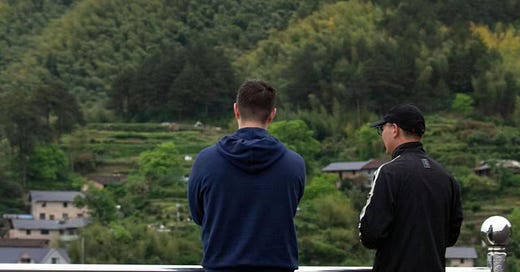


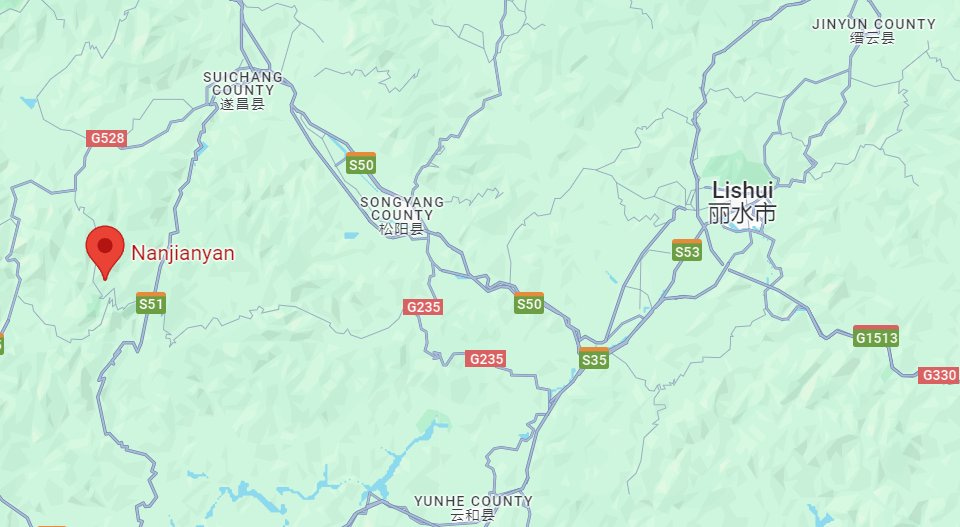
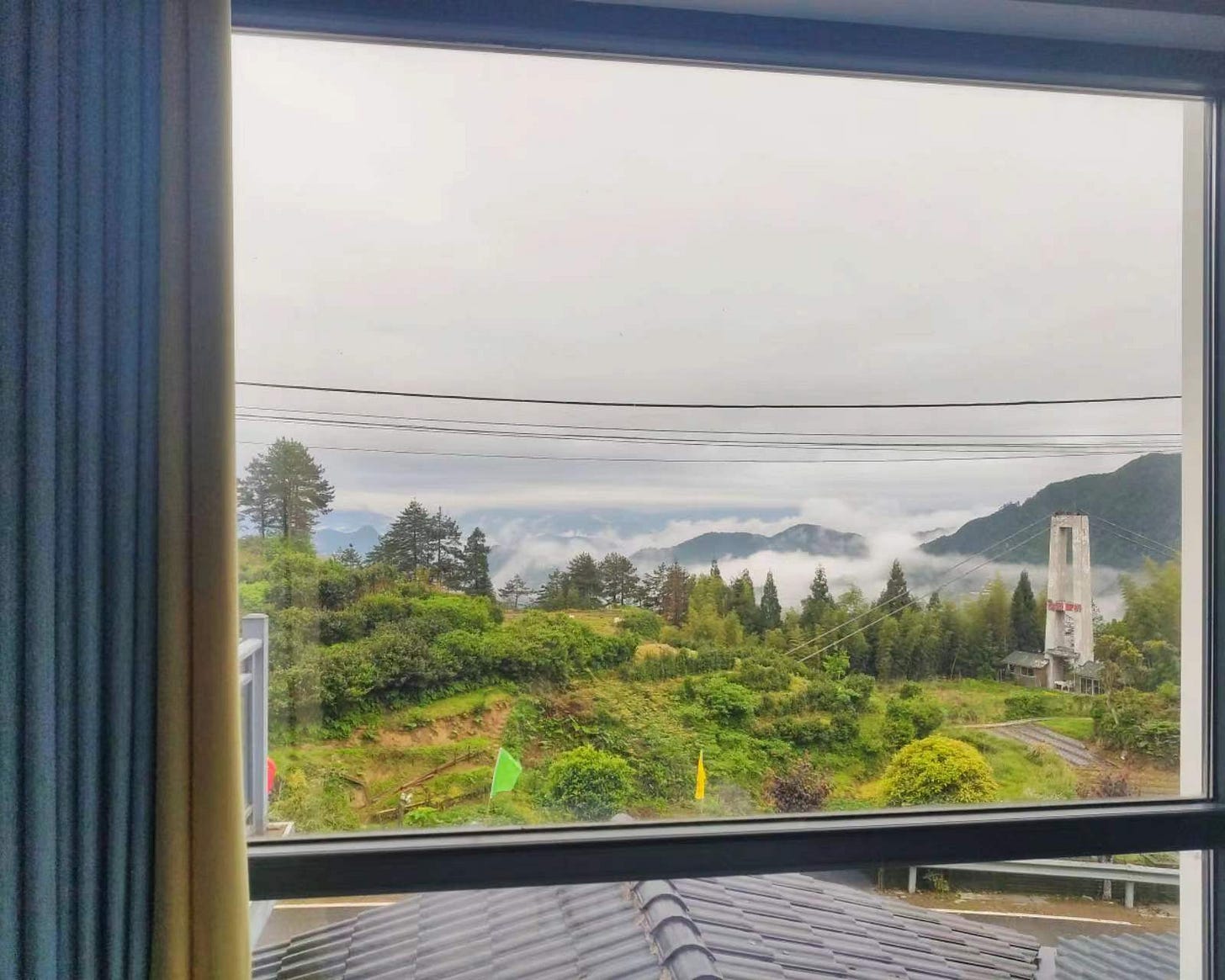

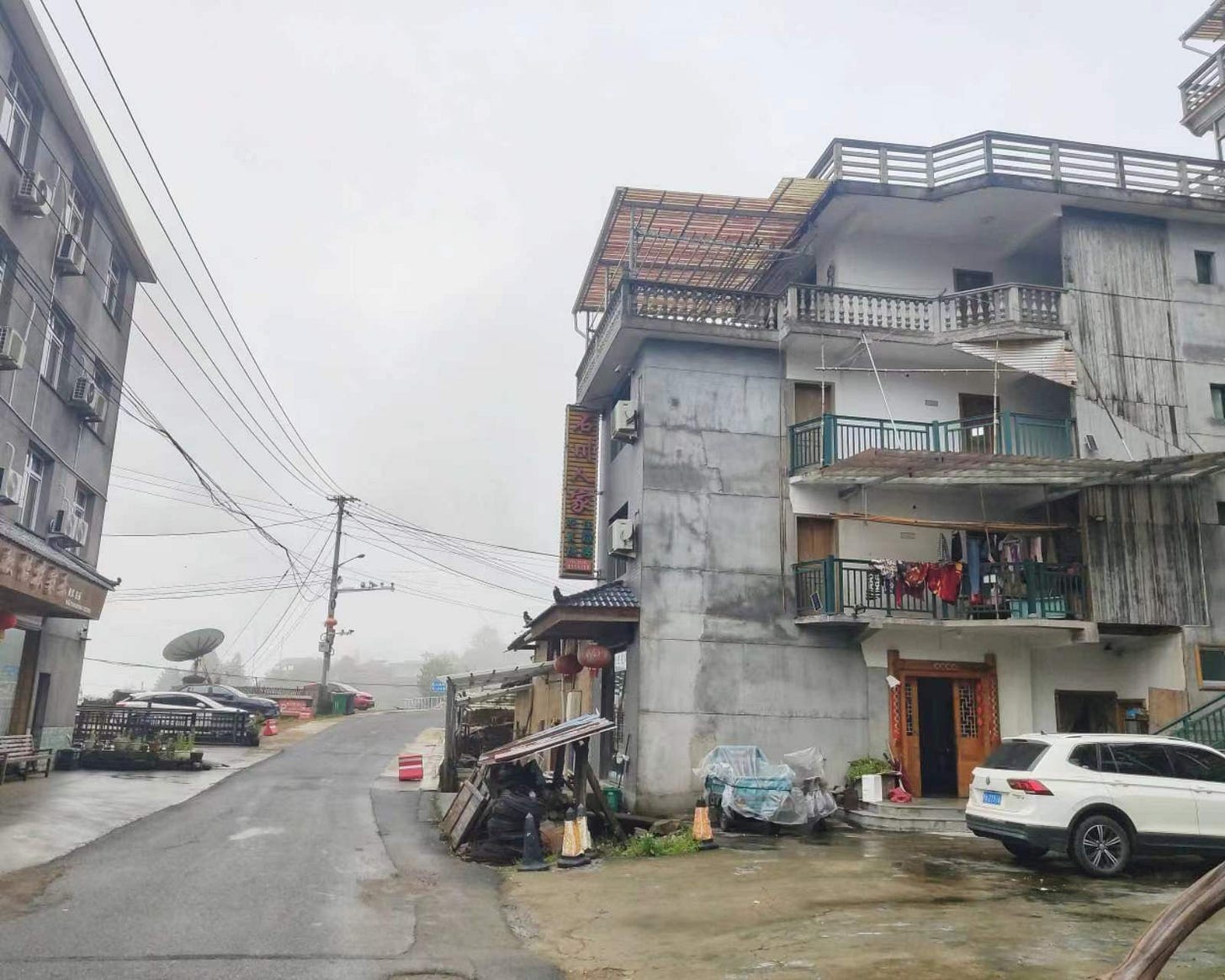
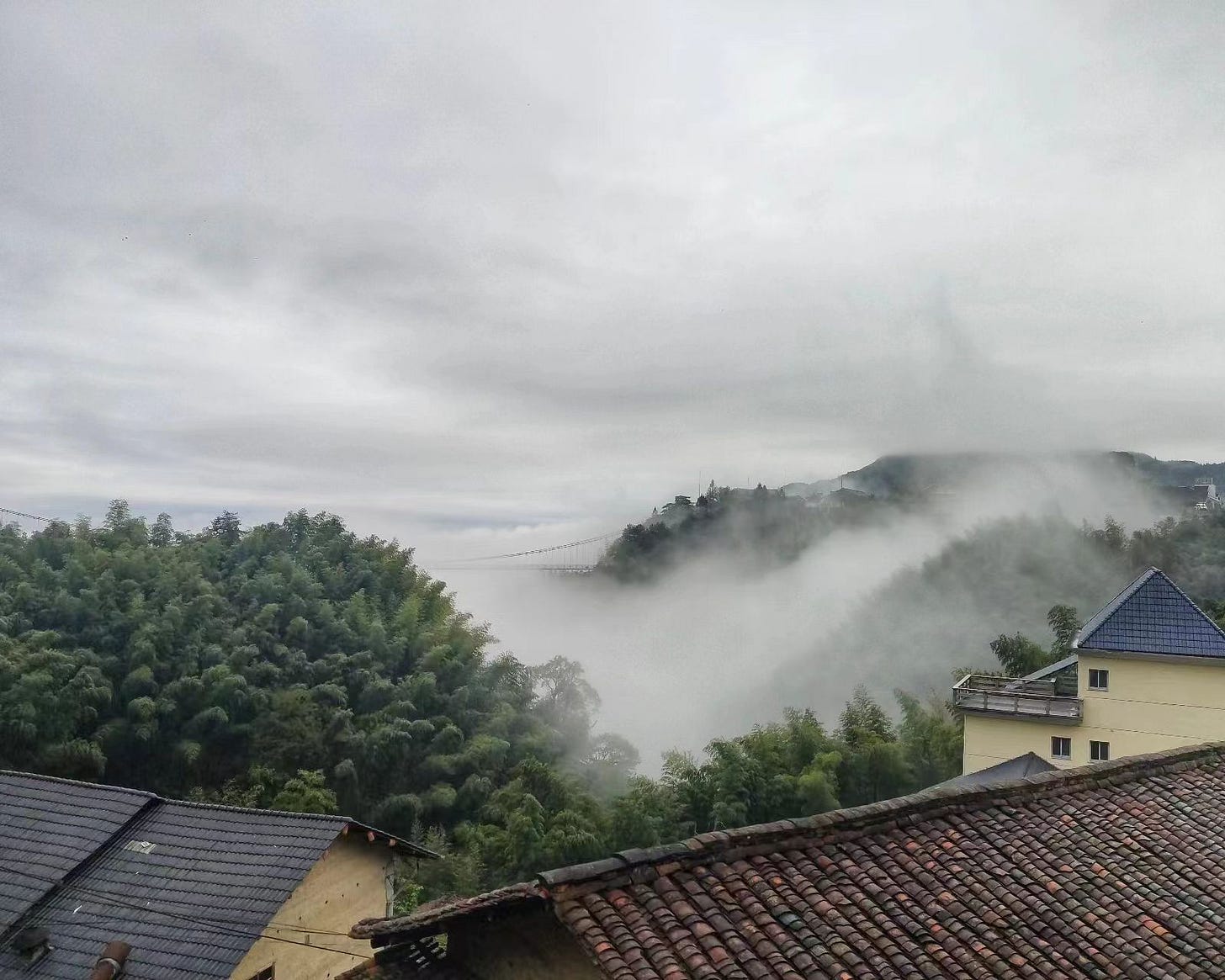
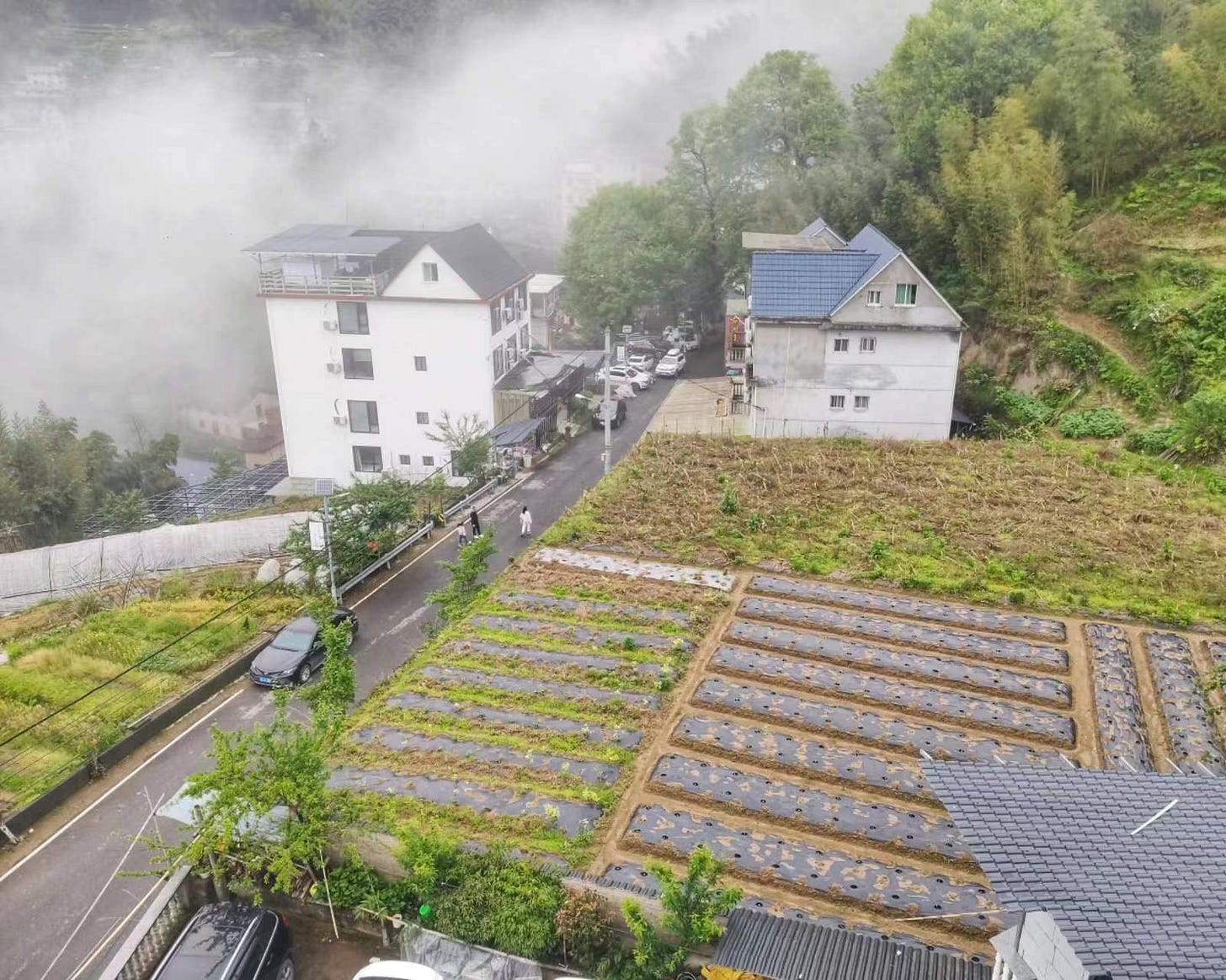
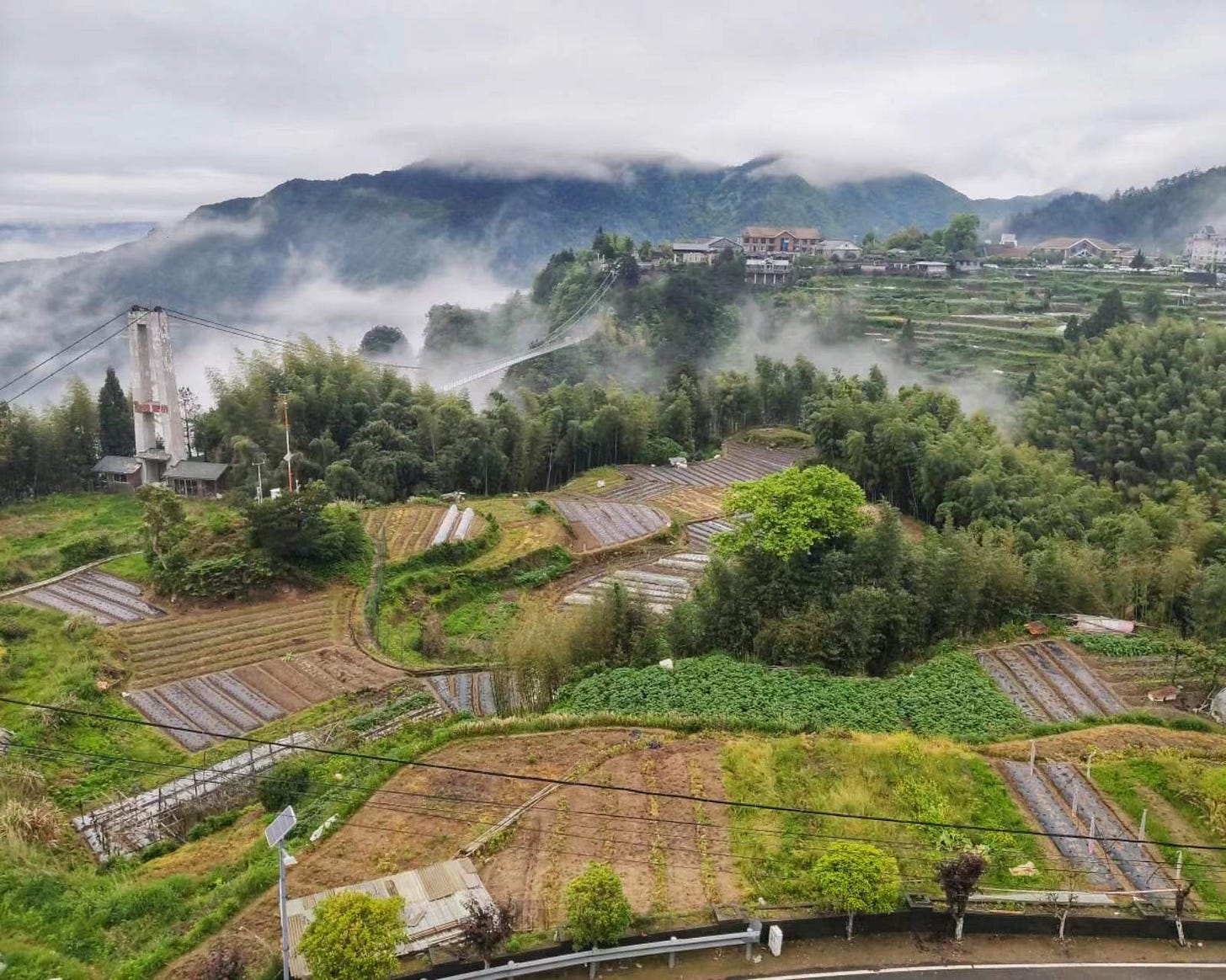
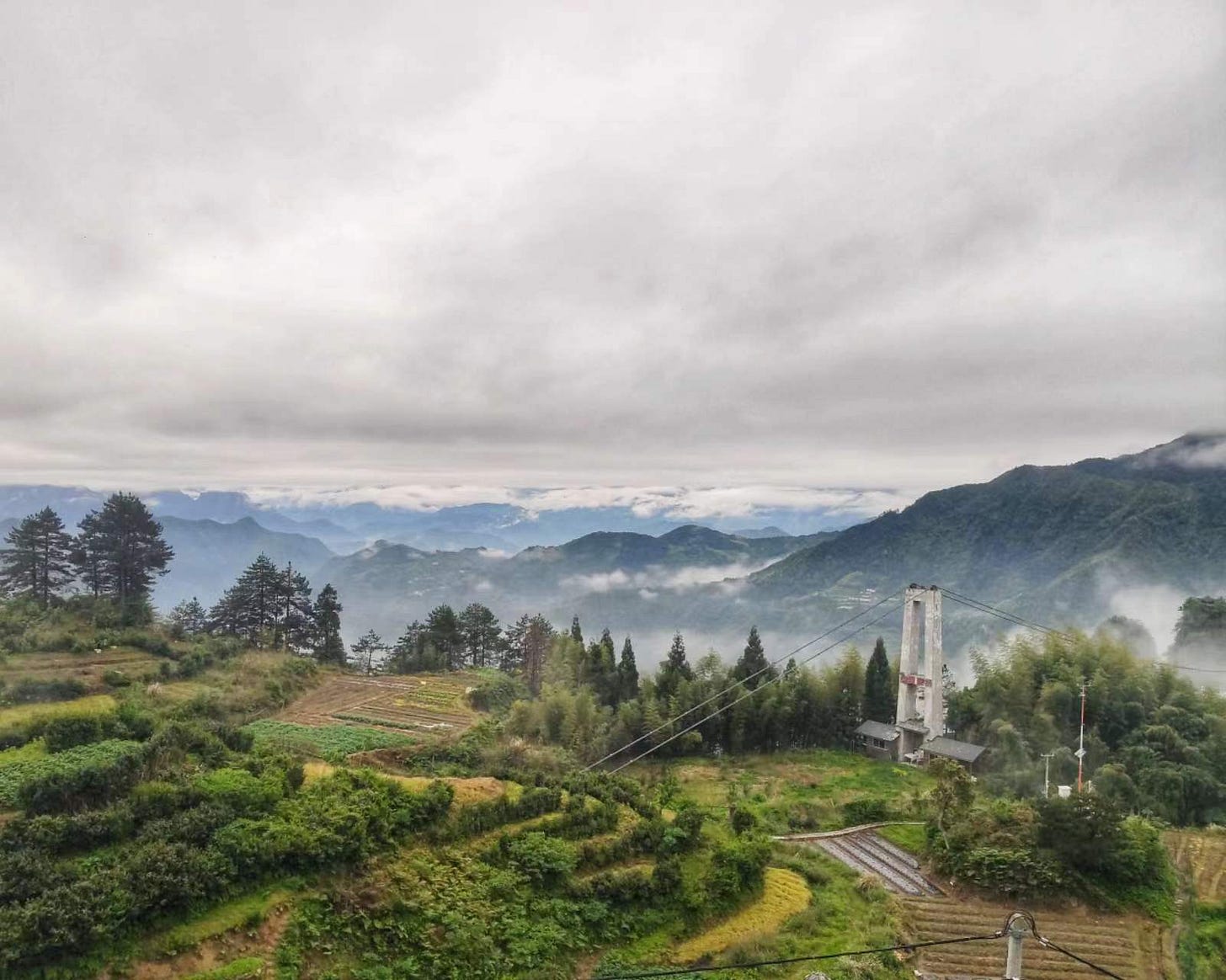
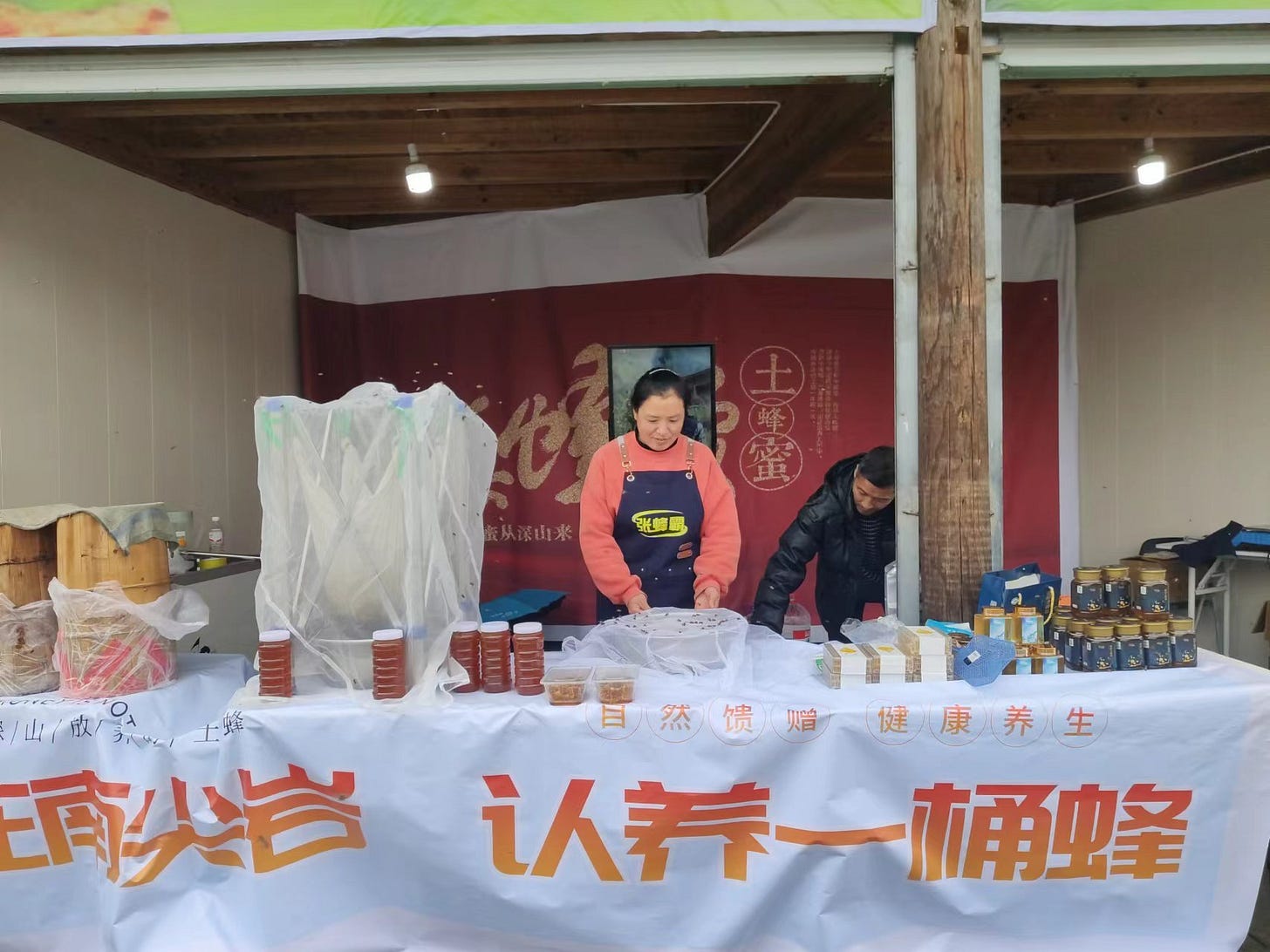
That’s a lovely story, thanks for sharing. It would be my favourite story too. A little sad, but also a happy story of successfully overcoming adversity.
I agree it’s unfair that rural children have to work harder. It’s a global problem. People in the Global South have to work harder, leave their homes and go overseas to work as migrant workers and face persecution in the societies that they help build up. Why is the world so unfair?
I am a descendant of Chinese migrants who had to leave China to make a better life for themselves, but at a cost. My siblings and I are Western educated and have lost our cultural heritage. I cannot speak the dialect of my grandparents fluently, and could not engage in meaningful conversation with them when I was young. It is something I always felt sad about. Why is the world so unfair?
Some parts remind me of the farmers in fly-over states in the USA, particularly the problem of schooling and children, though the part about having a growing business instead of a dying one is very different. Suicide among farming families in the USA and some parts of Canada is high. It would be interesting to hear from farmers who gave up or were forced to sell out their villages because the location was too remote or too poor to develop and moved into town. They must feel like fish out of water, how do they spend their days in town?